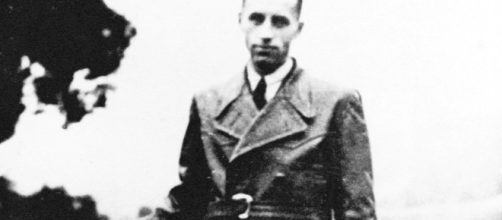Alois Brunner, the officer responsible for the death of 130 thousand Jews, has spent his last years locked up in a basement cellar in Damascus, where he languished in dingy conditions, according to an investigation published on Wednesday, 11, by the French magazine “XXI”
The story, endorsed by specialists in the area, attempts to solve the mystery around Brunner, the nazi who commanded the internment camp of drancy, from where French Jewish prisoners were sent to extermination camps.
Life after the war
The war criminal, originally from Austria, escaped from Germany to Egypt at the end of World War II (1939 – 1945) with a passport under the name of Georg Fischer.
There, he got involved in a movement for the independence of Algeria before moving to Syria.
In Damascus, Brunner collaborated with the Secret Service, transferring interrogation methods – and torture – developed by German Nazis. According to reports, he survived a bomb blast, in which he lost an eye and four fingers.
There are, however, several gaps in the story, and no confirmation about the last few years of his life. Simon Wiesenthal Center, in Vienna, which monitors Nazis, has previously said that Brunner had passed away in 2010, in Syria.
Home Prison
XXI Magazine says, though, that the Austrian Nazi officer Alois Brunner was under a sort of home prison in Damascus after 1989, limited to a cellar in the underground area of his apartment, and that he died in 2001.
Brunner was, at the time, 89 years-old.
The French investigation was praised by the notorious Nazi hunter Serge Klarsfeld, according to AFP News Agency. The magazine interviewed former employees of the Syrian Secret Service. As reported by them, Brunner did not regret his crimes and died with anti-Semitic beliefs.
Home prison guards reported that he “suffered and cried a lot” in his last few years and that he could barely tend to himself. He was fed with military rations and had to choose between eggs and potatoes for his meals.
“We are glad to know that he has lived poorly,” affirmed Klarsfeld to AFP.

